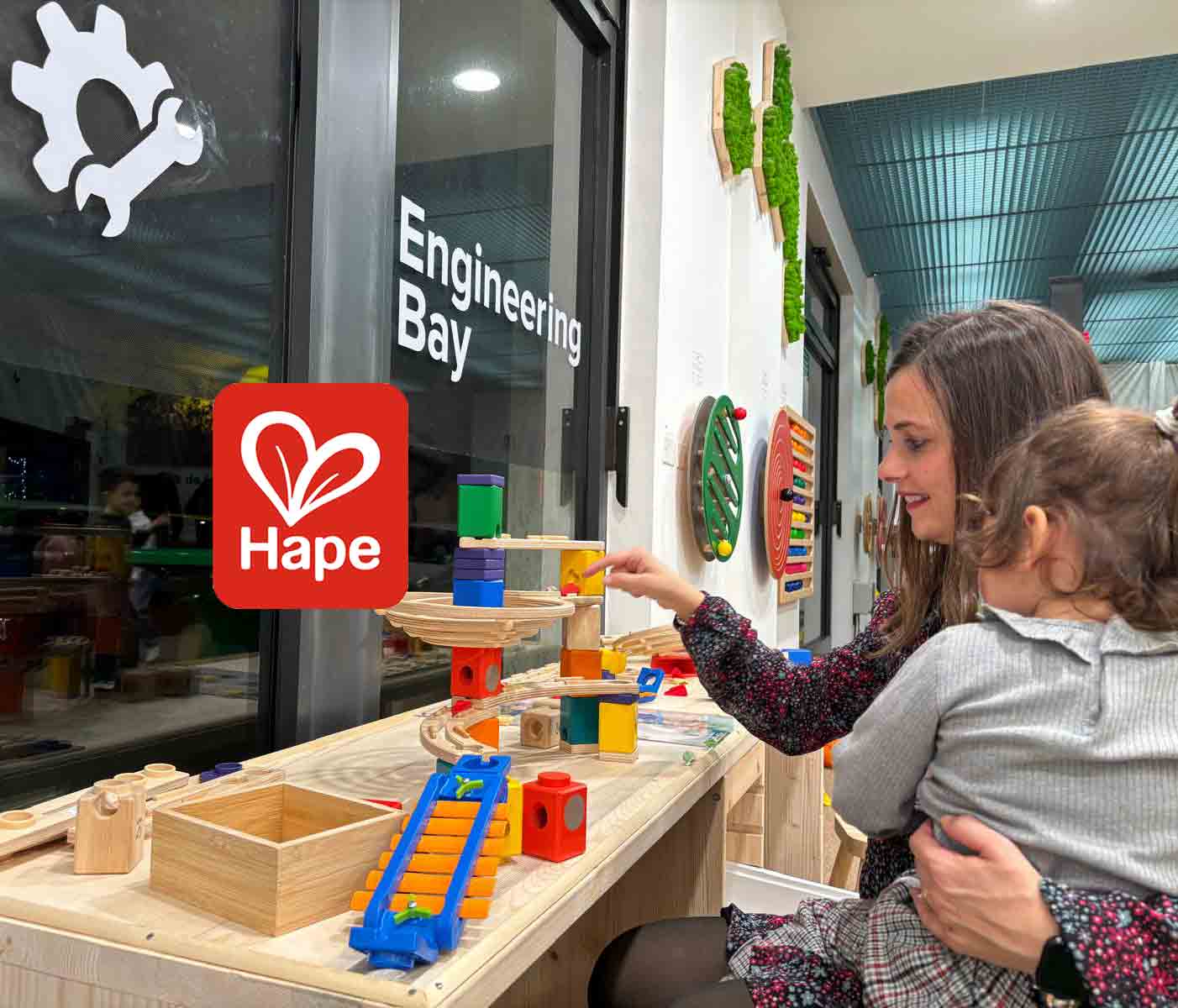Parenting is one of life’s most complex challenges, filled with moments of joy, growth, and sometimes frustration. It’s a journey that requires constant learning and adaptability. Many parents turn to books for guidance and wisdom as they navigate the unpredictable terrain of raising children. If you’re searching for insights to help improve your parenting approach, these six books provide invaluable perspectives and practical advice on nurturing your child’s development while maintaining your emotional well-being. Each offers unique strategies, ranging from better communication to fostering emotional resilience and practicing mindful parenting. This article will explore six must-read parenting books, providing detailed summaries and key takeaways for each.
“How to Talk So Kids Will Listen & Listen So Kids Will Talk” by Adele Faber and Elaine Mazlish
First published in 1980, “How to Talk So Kids Will Listen & Listen So Kids Will Talk” has remained a timeless classic in parenting literature. Written by Adele Faber and Elaine Mazlish, this book offers parents practical communication strategies that encourage cooperation, foster mutual respect, and build emotional connections with their children. Rather than relying on punitive measures, Faber and Mazlish advocate for empathy-based communication that nurtures positive relationships.
At the core of this book is the idea that children are more willing to listen when they feel heard and understood. The authors emphasize the importance of validating a child’s emotions before attempting to correct behavior. This approach fosters an environment where children feel safe and respected, which reduces resistance and promotes collaboration. The book also introduces techniques for active listening, helping parents better understand their children’s needs and emotions, which leads to more effective problem-solving.
One of the central takeaways from this book is the power of acknowledging your child’s feelings before addressing their behavior. When children feel understood, they are more open to cooperation. Rather than punishing your child, the authors suggest involving them in finding solutions to problems. This helps build responsibility and a sense of agency. Improving your listening skills is also emphasized; by reflecting back what your child is saying without judgment, you encourage more open communication and deeper emotional connections.
Actionable Steps for Parents:
- Acknowledge Feelings First: When your child expresses frustration, anger, or sadness, resist the urge to immediately correct their behavior. Instead, acknowledge their emotions by saying something like, “I see you’re feeling upset because…” This shows empathy and helps your child feel understood.
- Use Descriptive Praise: Rather than saying “Good job,” be specific about what your child did well. For example, “You worked really hard on your homework, and I noticed you stayed focused for a long time.”
- Involve Children in Problem-Solving: When faced with an issue, instead of imposing a solution, ask your child for their ideas on how to solve the problem. This builds their confidence and sense of responsibility.
“How to Stop Losing Your Sh*t with Your Kids” by Carla Naumburg
Carla Naumburg’s book, “How to Stop Losing Your Sh*t with Your Kids,” is a humorous yet practical guide for parents struggling with anger and frustration in their daily interactions with their children. With a blend of humor and empathy, Naumburg provides strategies for managing emotional outbursts by practicing mindfulness, self-care, and setting realistic expectations for both parents and children.
Naumburg’s primary focus is on mindful parenting. She encourages parents to be more present and aware of their emotions, particularly in stressful situations. By cultivating mindfulness, parents can better understand their emotional triggers and respond to their children with calm and patience rather than reacting impulsively. The author also emphasizes the importance of self-care, arguing that parents need to prioritize their own well-being in order to avoid burnout and maintain a more balanced approach to parenting.
A key takeaway from this book is the importance of being kind to yourself as a parent. Losing your temper from time to time is normal, and it’s essential to forgive yourself and use these moments as opportunities for growth. Self-care plays a crucial role in maintaining your emotional equilibrium, so it’s important to prioritize sleep, relaxation, exercise, and social support. Finally, mindfulness is a powerful tool that helps parents stay grounded and responsive rather than reactive in challenging situations.
Actionable Steps for Parents:
- Identify Your Triggers: Reflect on the situations that most often cause you to lose your temper. Is it when you’re tired, when your child isn’t listening, or when you feel overwhelmed? By identifying your triggers, you can prepare to respond more calmly.
- Practice Breathing Techniques: In moments of stress, take a few deep breaths before reacting. Slow, deep breathing helps activate your body’s relaxation response, allowing you to respond with more clarity and patience.
- Prioritize Self-Care: Make time for activities that recharge you, such as exercise, hobbies, or spending time with friends. When you take care of your own needs, you’re better equipped to handle the challenges of parenting.
“The Courage to Be Disliked” by Ichiro Kishimi and Fumitake Koga
Although “The Courage to Be Disliked” is not strictly a parenting book, its exploration of Adlerian psychology offers valuable insights for parents. Written by Ichiro Kishimi and Fumitake Koga, this book presents a philosophical dialogue between a young man and a philosopher, discussing themes of personal responsibility, freedom, and self-acceptance. These principles are highly relevant to parenting, especially when it comes to teaching children about resilience, accountability, and self-worth.
One of the central tenets of this book is the idea of personal responsibility. Kishimi and Koga argue that individuals are not victims of their past but are capable of shaping their own futures through the choices they make in the present. This mindset encourages children to take control of their actions and understand that they have the power to influence their lives, regardless of external circumstances. The authors also stress the importance of living in the present moment rather than dwelling on the past or worrying about the future, which is a valuable lesson for both parents and children.
Another key takeaway from “The Courage to Be Disliked” is the concept of freedom from approval. The authors argue that constantly seeking validation from others can stifle personal growth and happiness. For parents, this means teaching children to develop a strong sense of self that is not dependent on external approval. By modeling this mindset and encouraging self-confidence, parents can help their children cultivate resilience and inner strength.
Actionable Steps for Parents:
- Teach Personal Responsibility: Encourage your children to take responsibility for their actions and choices. For example, if they make a mistake, instead of punishing them, help them understand the consequences and how they can make things right.
- Model Living in the Present: Show your children how to stay present by practicing mindfulness together. This could involve simple activities like taking a mindful walk or practicing gratitude at the end of the day.
- Foster Confidence Without External Validation: Praise your child for their efforts and hard work, rather than focusing solely on outcomes. Help them understand that their self-worth isn’t determined by others’ opinions but by their own values and actions.
“Emotional Blackmail” by Susan Forward
Susan Forward’s “Emotional Blackmail” delves into the complex dynamics of manipulation within personal relationships, including the relationships between parents and children. Emotional blackmail occurs when one person uses guilt, fear, and obligation to control another’s behavior. In the context of parenting, it can be easy to fall into patterns of manipulation, especially when trying to manage difficult behavior. Forward’s book is a valuable resource for parents who want to foster honest, healthy communication and avoid the pitfalls of emotional manipulation.
Forward outlines the concept of FOG (Fear, Obligation, and Guilt), which is often used as a tool of control in relationships. The book teaches readers to recognize these tactics in their interactions and provides strategies for resisting and overcoming them. By becoming aware of how emotional blackmail works, parents can break the cycle and build relationships with their children that are based on mutual respect and open communication, rather than manipulation.
A major takeaway from this book is the importance of setting clear boundaries in relationships. Forward stresses that parents must learn to assert their needs and limits without resorting to guilt or fear-based tactics. Encouraging open dialogue and teaching children to express their feelings honestly helps foster trust and emotional security. Ultimately, the goal is to build relationships that are free from manipulation and founded on mutual respect.
Actionable Steps for Parents:
- Set Clear Boundaries: Establish and maintain boundaries with your children. For example, calmly explain that certain behaviors are unacceptable and follow through with consistent consequences, without resorting to guilt or fear-based tactics.
- Encourage Honest Communication: Create a space where your child feels comfortable expressing their emotions without fear of judgment or punishment. Let them know that it’s okay to feel angry or upset, and teach them how to express those feelings appropriately.
- Avoid Manipulative Language: Reflect on your communication style to ensure that you’re not using guilt or obligation to control your child’s behavior. For instance, avoid phrases like “After all I’ve done for you” and instead communicate clearly and directly about your expectations.
“Conscious Uncoupling” by Katherine Woodward Thomas
“Conscious Uncoupling” by Katherine Woodward Thomas became widely known after Gwyneth Paltrow used the term during her divorce, but the book’s lessons extend far beyond celebrity culture. Thomas presents a five-step process for ending a relationship in a healthy, compassionate way, with a strong focus on emotional healing and personal growth. For parents going through separation or divorce, this book offers invaluable guidance on how to minimize the emotional impact on children while fostering a peaceful, cooperative co-parenting relationship.
The central premise of “Conscious Uncoupling” is that ending a relationship doesn’t have to be destructive or traumatic. By embracing a mindful, emotionally aware approach to separation, couples can navigate the process with grace and minimize harm to themselves and their children. Thomas encourages individuals to take responsibility for their role in the breakup and to focus on healing, forgiveness, and growth rather than blame and resentment.
One of the key takeaways from this book is the importance of maintaining emotional integrity during the separation process. This means being honest with yourself and your partner about your feelings, while also prioritizing the emotional well-being of your children. By focusing on healing and personal growth, parents can model resilience and emotional maturity for their children, helping them navigate the transition with greater ease and stability.
Actionable Steps for Parents:
- Prioritize Open Communication with Your Ex-Partner: Even in the midst of separation, maintaining open, respectful communication with your co-parent is crucial for your children’s well-being. Set regular check-ins to discuss your children’s needs and ensure consistency in parenting.
- Focus on Emotional Healing for Yourself and Your Children: Allow space for both you and your children to express your emotions about the separation. Encourage honest conversations and reassure your children that their feelings are valid and important.
- Model Resilience and Personal Growth: Show your children that it’s possible to emerge from difficult situations stronger and wiser. By taking responsibility for your part in the separation and focusing on growth, you model resilience and emotional maturity for your children.
“The Joy of Hate” by Greg Gutfeld
Greg Gutfeld’s “The Joy of Hate” offers a different take on parenting, one rooted in the broader context of societal and cultural norms. Though more of a political commentary, the book provides insights into how cultural expectations and social pressures can influence parenting decisions. Gutfeld critiques what he calls “liberal tolerance,” arguing that the pressure to conform to societal norms can suppress individuality and personal freedom. This perspective can be applied to parenting by encouraging parents to question conventional wisdom and prioritize their own values over societal expectations.
In “The Joy of Hate,” Gutfeld emphasizes the importance of free speech, individuality, and standing up against the pressure to conform to what he describes as the “tyranny of tolerance.” For parents, this means teaching their children to think critically and independently, rather than simply following the crowd. Gutfeld’s book encourages readers to embrace their own beliefs and values, even when they go against popular opinion.
A major takeaway from this book is the importance of fostering independent thinking in your children. Encourage them to question societal norms and form their own opinions based on their values and experiences. By teaching children to think critically and stand by their beliefs, parents can help them develop a strong sense of self and the confidence to navigate a world that often pressures individuals to conform.
Actionable Steps for Parents:
- Encourage Independent Thinking: Challenge your children to question societal norms and think critically about the world around them. This could involve discussing current events, encouraging them to ask questions, and debating different perspectives together.
- Support Your Child’s Unique Identity: Celebrate your child’s individuality and resist the urge to push them into conventional molds. Whether it’s in their hobbies, friendships, or academic pursuits, support their passions and interests, even if they differ from what’s popular.
- Teach Resilience in the Face of Criticism: Help your child understand that standing by their beliefs may sometimes invite criticism or disagreement. Teach them to handle differing opinions with grace and resilience, reinforcing that their self-worth isn’t dependent on external validation.
Conclusion
These six books offer a wide range of perspectives and practical advice for parents navigating the challenges of raising children. Whether you’re looking to improve communication, manage your own emotional responses, or foster resilience and independence in your children, these books provide valuable tools and insights. By incorporating these strategies into your parenting approach, you can build stronger, healthier relationships with your children and create a nurturing environment that supports their growth and development.



